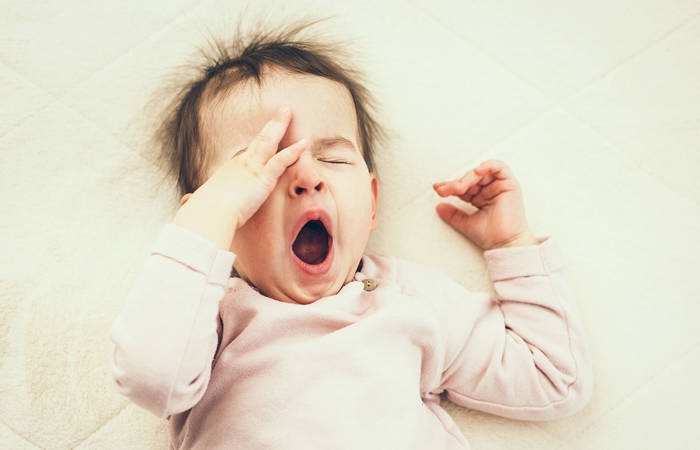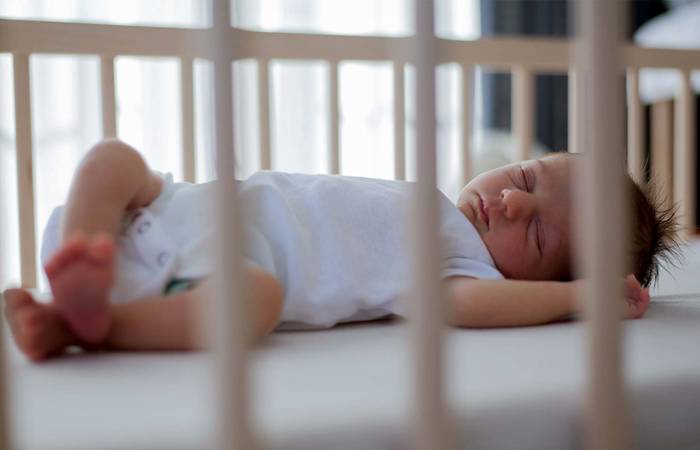Like what you see?
Sign up to receive more free parenting advice.
Thank you for subscribing to our newsletter!
Child Development
Video Gallery
See all videosNight terrors and child sleep issues - Dr Susan Moloney
Most children and many adults will experience nightmares and you have probably comforted your child during a nightmare. However, night terrors are different to nightmares. They are dramatic, happen suddenly and often predictably.
Night terrors and child sleep issues - Dr Susan Moloney
Most children and many adults will experience nightmares and you have probably comforted your child during a nightmare. However, night terrors are different to nightmares. They are dramatic, happen suddenly and often predictably.
Sleep — or rather the lack of it — is one of the most important topics for parents of young children. For new parents and those in the toddler and pre-kinder years alike, the quality and quantity of sleep can affect the entire household.
Sleep is an important part of our body’s metabolism, it is a period of altered consciousness where our immune system, brain, muscles, hormones and skeleton can have a period of restoration and growth. It is required to maintain memory, mood and cognitive function.
In children this is very important as a child's brain is about 90% of the size of an adult brain at two years of age. Most brain growth occurs during the time that children require the most sleep.
Children’s sleep can be impacted by a number of issues, the most dramatic being nightmares and night terrors.
The difference between night terrors and nightmares
Most children and many adults will experience nightmares and you have probably comforted your child during a nightmare. However, night terrors are different to nightmares. They are dramatic, happen suddenly and often predictably. The child will scream, shout, punch, sit up, thrash around, be sweaty, have a fast respiratory and heart rate and dilated pupils.
They won’t recognise you even though their eyes are open. Rarely some children will get out of bed and walk or run. They won’t fully wake and they won’t remember the event in the morning and you will be unable to console your child during an event.
They occur in the first half of the night and are often predictable, occurring at the same time each night in the non-REM or non-rapid eye movement parts of sleep. They can also happen multiple times during a night.
Night terrors usually occur between the ages of three to eight years. They don’t cause any long-term harm and children grow out of them as their brain matures. They are genetic and are more common in families in which there is a history of night terrors or sleepwalking or talking.
When these occur, you need to remain calm and wait until your child calms down, they can be frightening but they do not cause harm either in the short or long term. Don't try to wake your child as this may make them more agitated and it will take longer for them to get back to sleep.
He or she won’t remember the events. Have a chat to make sure there is nothing that is upsetting them at present. Be careful not to keep questioning them as this will make them anxious and may make them worse. They are rarely due to significant stress or trauma.
Most children will grow out of night terrors as their brain matures. If they are occurring at the same time each night you can try scheduled waking to break the sleep cycle. Set an alarm and wake your child 10-15 minutes before an event would occur and then get them back to sleep. You need to do this for a week.
This will not disrupt sleep quality and if done correctly can work in most children. If they are occurring many times per night or in teenage years you need to see your doctor. Rarely, large tonsils can cause obstruction to the airway resulting in waking and being scared. Medications are rarely useful.
Night terrors usually occur between the ages of three to eight years. They don’t cause any long-term harm and children grow out of them as their brain matures.Associate Professor Susan Moloney
Stay up to date with the latest news and articles from First Five Years
Thank you for subscribing to our newsletter!
Other child sleep issues
Nightmares are common and again most children grow out of them. They usually occur later in sleep and cause strong feelings of fear, terror or anxiety, they are often remembered the following morning and can be described. They can be a response to a frightening event such as a scary movie or could be due to longer term anxiety. The first step is to see if there is anything that is worrying them.
Sleep apnoea is when there are pauses in breathing during sleep. In children this may be from obstruction of the upper airway by large tonsils during deep stages of sleep. This is recognised by pauses in breathing followed by load grunts, snorts and groans on arousal. It can be associated with day time sleepiness. If concerned you should see your GP.
Bruxism or teeth grinding is common in childhood and most children will grow out of this as they get older and it usually does not cause damage to the teeth. If you are concerned see your dentist.
Nocturnal enuresis or bed wetting is also related to the sleep cycle and it is not a bladder disorder. As we get older we have changes in our sleep cycles. Infants and toddlers have deep sleep and do not respond to messages of a full bladder. Bed wetting is normal until the age of five, if it is happening after this age you should see your GP, especially if there is day time wetting.
Finding positive sleep routines
For all sleep conditions, good sleep hygiene or positive routines are very important both for the child and the household.
Sleep produces cyclical surges in hormones such as cortisol and growth hormone that are required for growth and immunity, it is important to allow enough time for sleep and to have a regular schedule for sleep to regulate these changes.
Ensure there is a consistent time and routine for sleep. There should be no screens in the room and they should be able to fall asleep by themselves.
Normal sleep time varies as we get older, newborns will sleep for 14 to 17 hours per day. This decreases to about 11-14 hours for toddlers and 9-11 hours for school children. Sleep is required to learn and grow.
We have periods of both deep and quiet sleep during the night and these sleep cycles are important to achieve good quality sleep. At the end of each cycle there is often a period of awakening and this may not result in becoming alert or fully awake if children have a good sleep routine.
Children need a routine for sleep that allows quiet low-key activities prior to sleep with a wind down time to relax. If toddlers can fall asleep by themselves in their own bed most will sleep through without waking their parents.
As we all have awakening periods during the night the sleep routine needs to be able to allow a toddler to fall asleep by themselves or they will require the presence of an adult for all night awakenings. It is important a child can do this without their parents being needed for each sleep onset.
The bedroom needs to be quiet, cool and dark with no blue lights or screens as these activate the brain and prevent sleep. There needs to be a consistent routine: brush teeth, read a book or sing a song and leave the child to fall asleep on their own when they are drowsy.
Don’t give a bottle to fall asleep, ensure it is finished prior to the child going to bed, remember feed, play, sleep. There may be a period of calling or getting up from the bed, check if they need something and redirect them back to bed. If they do wake at night use a dim light and soothe not play. Emphasise the difference between night and day.









